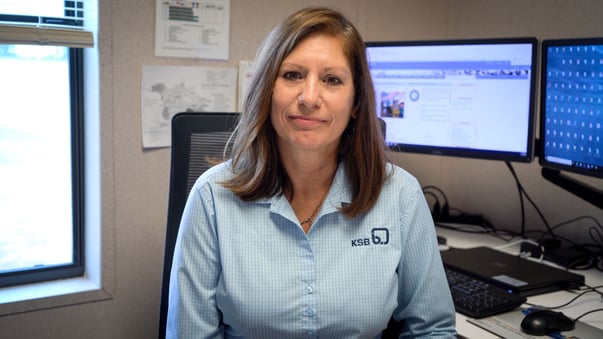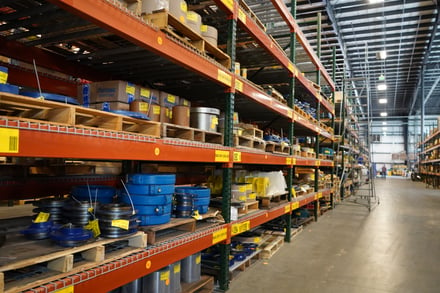
COVID-19 has been an unprecedented disrupter of every industry, including those of us in mining. The industry as a whole has experienced supply chain difficulties, illness in the workforce, business closures, and more. While things seem to be stabilizing in 2021, it’s imperative that organizations relying upon heavy equipment prepare for the unexpected. This means securing pump support should something else disrupt your operations in the future. Here are four things to do right now to ensure you have the pump support you need during COVID — and beyond.
#1: Digital tech support for your pumps
Due to the coronavirus, our technicians are often limited in their ability to visit customers on-site. However, virtual technologies have been highly effective for diagnosing field issues. Zoom calls and screen shares help teams make the best use of the tools available, in addition to receiving ongoing support from suppliers.
Video conferencing shows real promise as a new way to provide support to customers seeking to limit outsiders from coming into their operation. It’s one of the ways KSB ensures that your service will not be interrupted. Making sure your slurry pump vendor can continue to provide support during COVID will ensure worry-free production — at least when it comes to your pumps!
While a virtual support team helped many companies troubleshoot existing pumps and trained staff on new installations over the past year, we know there have been challenges across the industry. In addition to supply chain disruptions, entire production teams were forced to close for a time last year with very little notice. In these situations, it makes sense to plan ahead. Additionally, our parent company, KSB Group, has created free online training courses in centrifugal pumps, hydraulics, and materials. The goals of these efforts are to provide the support you need from the industry leader, KSB.

#2: 3-2-1 rule for having spares on hand
The damage to a slurry pump can vary from a blown seal to an unexpected parts failure. The good news is there are solutions to all of these problems. If you have parts on hand, following the 3-2-1 rule, we can troubleshoot repairs via a Zoom call to get you back up and running.
The 3-2-1 rule means that customers should stock 3 liners and 2 impellers for every 1 shell. This will not only prepare you for the unexpected but also give you some breathing room, should your supply chains become problematic again.
Typically, we advise our customers to keep several spare parts handy. This includes:
- Impellers
- Gaskets/seals
- Shaft sleeves
- Shells
- TUF-PAK packing
- Suction liners
One note: When considering “stocking up” under the 3-2-1 rule, make sure your spare parts are approved and not replicator parts. Replicator parts often do not conform to the required tolerance. This can create unnecessary friction in pump operations such as impellers that don’t thread into the shaft, excessive vibration, poor wear life, damage to adjacent OEM parts, and more.

#3: Follow your maintenance plan
Slurry pumps, like all heavy equipment, require periodic TLC to function properly. Without maintenance, pumps can suffer catastrophic failures that lead to downtime and possible injury. Some of the critical pump maintenance (not a comprehensive list) tasks that you should follow include:
- Daily maintenance: Check oil, monitor gauges, watch for leaks, check the V-belt for tension.
- Weekly maintenance: Record gauge readings, readjust the impeller as necessary.
- Quarterly maintenance: Empty used lubricant and replace, clean and oil studs and threads, inspect the stuffing box.
- Semiannual maintenance: Perform full pump inspection, inspect and flush drains, clean bearings and housings.
While we know things have been hectic since COVID-19, this is no excuse for skipping maintenance that could extend the life of your pump. Doing this will ensure your pump has the right support long after the pandemic is over.

#4: Know who to call in the event of a crisis
Failing to plan is like planning to fail — and pump failure can cost you big money. Knowing who to call during a crisis isn’t something you want to figure out while the crisis is occurring. Having a breakdown plan is an important way for you to cope with the unthinkable, should it occur.
